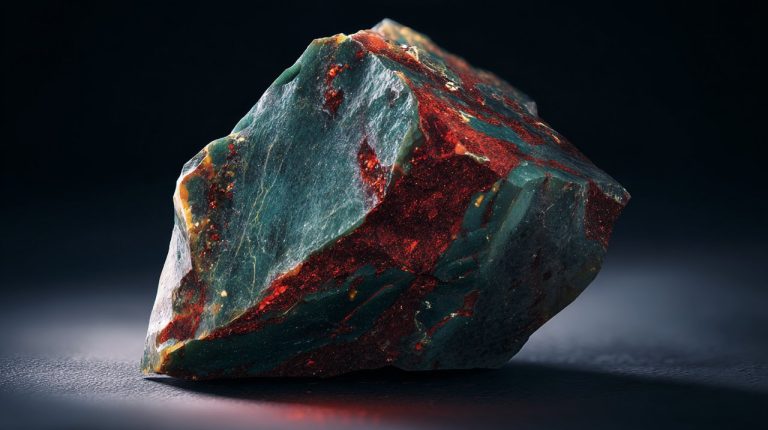Chinese Zodiac Animal:How do I find my Chinese birth animal?
Have you ever considered the subtle influences that might have shaped your very being from the moment you arrived? In Chinese culture, your birth year isn’t just a date; it’s a key that links you to one of twelve powerful animal signs. This ancient connection offers a profound framework for understanding your personality, relationships, and unique life path, continuing to resonate deeply across generations and cultures.
Ask a specific question for a more tailored AI interpretation.
Understanding the Chinese Zodiac: A Cultural Foundation
The Chinese zodiac system, known as Shengxiao (生肖), stands as one of the world’s most enduring personality typologies, with roots stretching back thousands of years. Unlike Western astrology, which aligns signs with months, the Chinese system unfolds over a twelve-year cycle, with each year embodied by a distinct animal. Each animal carries unique characteristics and qualities, offering a fascinating lens through which to view human nature.
This intricate system is deeply interwoven with core Chinese philosophies, including the principles of yin-yang and the five elements. The twelve animals – Rat, Ox, Tiger, Rabbit, Dragon, Snake, Horse, Goat, Monkey, Rooster, Dog, and Pig – are not arbitrary symbols.
Their order and significance are often explained through captivating origin stories. One widely cherished legend recounts the Jade Emperor’s great race, where each animal’s position in the zodiac reflects its determined finish in the competition. These narratives have profoundly embedded the zodiac animals into Chinese cultural identity, influencing everything from understanding personality traits to guiding life choices.
For many, particularly in traditional Chinese households, knowing one’s birth animal is far more than mere trivia. It’s a fundamental piece of self-knowledge that helps individuals navigate relationships, understand their innate tendencies, and find their place within a broader cosmic framework.
Consider the excitement when parents welcome a child born in the Year of the Dragon. They immediately recognize certain traits and potentials associated with this powerful sign, anticipating how these might shape the child’s future. This deep understanding forms a vital thread, connecting modern individuals to an enduring ancestral wisdom that continues to inform and enrich lives.
Finding Your Chinese Zodiac Sign: Methods and Calculations
To accurately pinpoint your Chinese birth animal, we first need to grasp a crucial difference: the Chinese lunar calendar doesn’t align perfectly with the Gregorian calendar we use daily. The Chinese New Year, for instance, typically shifts between January 21 and February 20 each year.
This means that if your birthday falls in January or early February, you might actually belong to the previous zodiac year’s animal. It’s a common point of confusion, but an important distinction for precise identification.
The Traditional Approach:
- Identify Lunar New Year: Your first step is to find the exact date of Chinese New Year for your specific birth year.
- Compare Your Birth Date: Once you have the Lunar New Year date, determine if your birthday falls before or after it. This will tell you which zodiac year truly applies.
- Follow the Twelve-Year Cycle: With this information, you can then count backward or forward from a known year (for example, 2024 is the Dragon, 2023 was the Rabbit) to find your corresponding animal.
For a quick reference, you can use this general guide based on Gregorian birth years. However, always remember the crucial lunar calendar shift, which particularly affects those born in January or early February.
- Rat: 1924, 1936, 1948, 1960, 1972, 1984, 1996, 2008, 2020
- Ox: 1925, 1937, 1949, 1961, 1973, 1985, 1997, 2009, 2021
- Tiger: 1926, 1938, 1950, 1962, 1974, 1986, 1998, 2010, 2022
- Rabbit: 1927, 1939, 1951, 1963, 1975, 1987, 1999, 2011, 2023
The sequence then continues with Dragon, Snake, Horse, Goat, Monkey, Rooster, Dog, and Pig. For absolute accuracy, especially if your birthday hovers around the lunar new year transition, your best bet is to consult a specialized Chinese almanac or an online calculator designed for this purpose.
Beyond the Basics: The Five Elements and Your Complete Birth Sign
Here’s where the Chinese zodiac truly deepens: many people don’t realize that each animal sign is also paired with one of five fundamental elements – Wood, Fire, Earth, Metal, and Water. This combination creates a unique sixty-year cycle, offering far greater specificity to your birth sign.
This expanded system provides a much more nuanced and detailed portrait of personality traits and life tendencies, akin to how Western astrology integrates planets and houses for deeper insights. The element linked to your birth year powerfully modifies how your animal sign expresses itself.
For example, a Water Tiger might exhibit their inherent courage with thoughtful intuition and adaptability, while a Fire Tiger could express a more impulsive, passionate, and direct form of bravery. Grasping both your animal and its elemental modifier paints a much richer, more complete picture of your Chinese birth animal’s influence on your character.
To discover your elemental influence, simply look at the last digit of your birth year:
- Years ending in 0 or 1: Metal
- Years ending in 2 or 3: Water
- Years ending in 4 or 5: Wood
- Years ending in 6 or 7: Fire
- Years ending in 8 or 9: Earth
This fascinating, deeper layer of the Chinese zodiac clarifies why two individuals born under the same animal, but in different years, can exhibit surprisingly distinct personality traits. The intricate interplay between your animal sign and its element forges a unique energetic signature, a concept that Chinese astrologers have meticulously studied and interpreted for centuries.
Living With Your Birth Animal: Personal Growth and Self-Understanding
So, now that you’ve discovered your Chinese birth animal and its elemental companion, what’s next? How can this ancient knowledge meaningfully enrich your daily life? The beauty of the Chinese zodiac lies in its practical application for personal growth.
Unlike generic horoscopes that often provide vague, one-size-fits-all predictions, the Chinese zodiac offers a powerful framework for deep self-reflection and development. Your birth animal isn’t a rigid blueprint dictating your destiny; instead, it illuminates your innate potentials and tendencies, inviting you to engage with them mindfully.
A powerful way to leverage this wisdom is by keeping a reflective journal. Observe how your birth animal’s traditional traits manifest in your daily experiences. For instance, if you’re a Rabbit, you might recognize your diplomatic approach shining through in challenging conflict situations.
If you’re a Monkey, you could become more aware of your innate creativity expressing itself in unexpected, innovative ways. This heightened awareness elevates the zodiac from mere curiosity to a truly practical and insightful tool for continuous personal development.
Beyond personal traits, the Chinese zodiac also imparts profound wisdom about cycles and timing. Each animal’s influence returns to prominence every twelve years, marking what Chinese tradition calls your ‘ben ming nian’ (本命年) – literally, your ‘birth animal year’.
Interestingly, and contrary to many Western notions of a ‘lucky year,’ your ben ming nian is often viewed as a time of challenge, transformation, and self-reflection. It’s a period that traditionally calls for extra awareness and care, as it can bring both opportunities and obstacles.
By understanding these cyclical energies, you can better prepare for different life phases, approaching them with greater wisdom and a proactive mindset.
Ultimately, embarking on the journey to find your Chinese birth animal opens a remarkable door. It’s an invitation to a perspective that deeply harmonizes with nature’s rhythms and honors the profound interconnectedness of all things. This isn’t just about ancient history; it’s about timeless wisdom.
Whether you engage with it as a rich form of cultural appreciation, a pathway to deeper self-awareness, or simply as a fascinating lens for understanding yourself and others, the enduring wisdom of the Chinese zodiac continues to offer truly meaningful insights for our contemporary lives. It reminds us that our story is always unfolding, guided by forces both seen and unseen.
💡 Frequently Asked Questions
The Chinese zodiac system, or Shengxiao, is one of the world's oldest personality typologies. It operates on a twelve-year cycle, with each year represented by an animal, and is deeply intertwined with Chinese philosophy, including the concepts of yin-yang and the five elements.
To find your Chinese birth animal, you need to consider the Chinese New Year, which typically falls between January 21 and February 20. If your birthday is in January or early February, you might belong to the previous year's animal. For precise results, especially if born near the lunar new year transition, it's recommended to consult a Chinese almanac or use a specialized calculator.
Beyond the animal sign, each Chinese zodiac sign is combined with one of five elements—Wood, Fire, Earth, Metal, and Water—creating a sixty-year cycle. The element associated with your birth year significantly modifies your animal sign's expression, providing a more nuanced and specific portrait of personality traits and life tendencies.
'Ben ming nian' (本命年) refers to your zodiac year, which is the year when your birth animal returns in the twelve-year cycle. In Chinese tradition, this year is considered a time of challenge and transformation, rather than luck, and requires extra care and reflection.



















